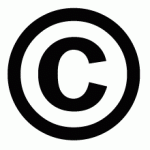In all, Retraction Watch published 22 stories on the implosion of Pottis career. In fact, three of the top four Google results for his name all point to the Retraction Watch blog the fourth is his Wikipedia entry. Despite the widespread attention to his misbehavior, Potti managed to get a position at the University of North Dakota where he worked earlier in his career. Meanwhile, he hired a reputation management company, which dutifully went about creating websites with glowing things to say about the doctor.
This morning, however, 10 of the Retraction Watch posts vanished. An e-mail Oransky received explained why: an individual from “Utter [sic] Pradesh” named Narendra Chatwal claimed to be a senior editor at NewsBulet.In, “a famous news firm in India.” Chatwal said the site only publishes work that is “individually researched by our reporters,” yet duplicates of some of the sites material appeared on Retraction Watch. Therefore, to protect his copyright, he asked that the WordPress host pull the material. It complied.
There are a large number of reasons to doubt this story. As Oransky told Ars, “WhoIs says the offending site didnt exist until after wed posted nine of the allegedly plagiarized posts.” And he noted one of the commenters at the site pointed out one of the supposedly plagiarized pieces visible on the News Bullet site refers to “Ivan’s Reuters colleagues.” The style of writing and format of the stories in question should also be very familiar to regular Retraction Watch readers.
A quick look at a number of other posts on the site also shows Chatawals claims of original reporting are bogus. Simple Google searches show sentences of the material appear at a variety of other outlets. See, for example, this story, which is apparently a direct copy of a Indo Asian News Service article.
This is the latest in a long line of spurious DMCA takedowns, but its the first that Oransky and Marcus have dealt with Oransky said theyve had a single cease-and-desist letter about a copyrighted image
MORE: Site plagiarizes blog posts, then files DMCA takedown on originals | Ars Technica.




